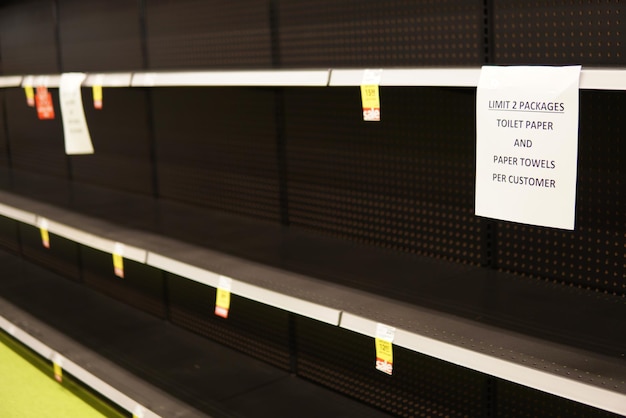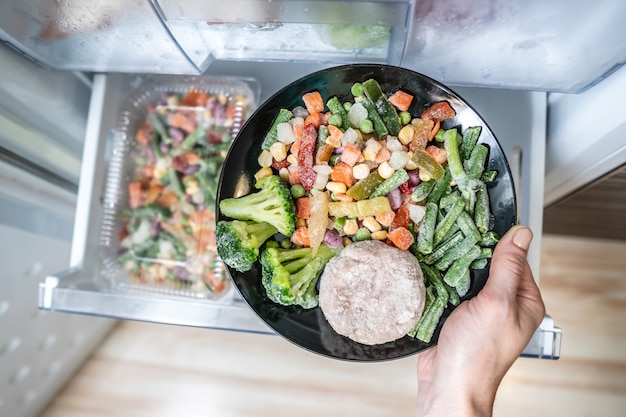Reduce Your Grocery Bill: Weekly Sales Meal Planning

Reduce your grocery bill by 25% by strategically planning meals around weekly sales, focusing on what’s on offer and building your meal plan accordingly to minimize expenses and maximize savings.
Want to **reduce your grocery bill: plan your meals around weekly sales and save 25%**? It’s more achievable than you might think. By making smart choices and planning your meals based on what’s on sale, you can significantly cut your food expenses.
Simple Steps to Reduce Your Grocery Bill
Cutting down on grocery expenses doesn’t require extreme couponing or drastic lifestyle changes. It’s more about adopting a conscious approach to meal planning and shopping. Let’s explore the first steps you can take to start saving money today.
Check Weekly Ads Before Planning
The key is planning meals around what’s already on sale. This can lead to significant savings compared to buying items at full price. Look for items that are deeply discounted and versatile enough to be used in multiple meals.
Make a List Based on Sales
After reviewing weekly ads, create a list of potential meal options using these discounted items. Building meals around discounted items ensures you capitalize on savings and reduce the temptation to buy things not needed.
- Prioritize seasonal produce for the best prices and quality.
- Check for “buy one, get one free” deals on staples.
- Consider store brands for additional savings on pantry items.
Transforming your meal planning based on weekly sales allows you enjoy nourishing meals and drastically reduce your grocery bill: plan your meals around weekly sales and save 25% or even more as you become more skilled in this process.

Turn Sales into Tasty Meals
Once you have a list of sale items, the next step is to turn those bargains into delicious and satisfying meals. You’ll want to find recipes where the items on sale shine and play a central role.
Search for Online Recipes
Websites, blogs, and social media are full of recipe ideas that highlight seasonal and sale items. These resources can provide inspiration and guide you in creating meals that are both economical and delicious.
Adapt Recipes to Use Sale Items
Don’t be afraid to switch things up in a recipe. Got chicken on sale instead of beef? Then prepare the chicken. By making those little adjustments, you’re still able to put that recipe you love on the menu, but with substantial cost savings.
- Explore different ethnic cuisines that often use inexpensive ingredients.
- Make use of pantry staples like beans, lentils, and rice for hearty meals.
- Use vegetable scraps for homemade broth to reduce waste and costs.
Turning sales into amazing meals is the key to reduce your grocery bill: plan your meals around weekly sales and save 25% without cutting back on the quality or taste of your food.
Shop Smart: Maximizing In-Store Savings
Going to the store is not as simple as just picking up some of the things on your list. Maximize your money by making some smart choices when you go to the grocery store. Let’s check some of these ideas that can work for you.
Stick to Your List
A shopping list helps you stay on track and resist impulse purchases. This is essential for controlling your spending and ensuring you buy only what you need.
Compare Unit Prices
Always check the unit price (price per ounce or pound) to find the best value. Sometimes, larger sizes are not always cheaper per unit, so comparing ensures you’re getting the most for your money.
- Shop during off-peak hours to avoid crowds and distractions.
- Use coupons and rewards programs for extra savings on your purchases.
- Consider plant-based options as they frequently are great source of economical foods.
Smart shopping involves being prepared and informed. By adhering to your list and comparing prices, you can reduce your grocery bill: plan your meals around weekly sales and save 25% while stocking up on quality ingredients.
Embrace Meal Prep and Minimize Food Waste
Food waste is a great money-waster and a constant problem in many households. When you minimize food waste, you are also helping keep more money in your wallet. Let’s look at some ways to minimize food waste and maximize your dollar.
Prepare Meals in Advance
Meal prepping can prevent food waste by allowing you to use ingredients efficiently and ensures meals are readily available, reducing the temptation to order takeout or eat out.
Use Leftovers Creatively
Turn leftovers into new meals to avoid waste. Use leftover roasted chicken in soups, salads, or sandwiches to extend their usability.

When you embrace meal prep and create some easy ways to creatively use your leftovers, you can reduce your grocery bill: plan your meals around weekly sales and save 25% and enjoy the benefits of simple dinners.
Grow Your Own Food to Save Money
Growing your own food can provide fresh produce at your fingertips and lower grocery costs. It doesn’t need to be expensive or time-consuming, especially if you are starting small.
Start with Easy-to-Grow Herbs
Herbs like basil, mint, and chives are easy to grow in pots or small gardens. Having fresh herbs at your disposal can enhance the flavor of your meals and reducing the need to buy them from the store.
Plant a Small Vegetable Garden
Consider growing vegetables like tomatoes, lettuce, or peppers if you have more space. These can provide a steady supply of fresh produce throughout the growing season. You can even grow them inside with hydroponics.
- Join a community garden for shared resources and learning opportunities.
- Regrow vegetables like green onions and lettuce from leftover scraps.
- Preserve your harvest by canning, freezing, or drying to extend its shelf life.
Growing your own food adds some money back into your wallet. And, you can reduce your grocery bill: plan your meals around weekly sales and save 25% while embracing sustainability and enjoying locally grown produce.
Master the Art of Budget-Friendly Cooking
Being a skilled cook that knows how to stretch a buck can work wonders for lowering food costs. You can learn money saving ideas to help you with that goal.
Bulk Cooking Strategies
Cooking large batches of meals and freezing them for later use saves time and money. It can also reduce your reliance on convenience foods that are often more expensive. And, it cuts down on your cooking time when you are in a hurry.
Utilize Cheaper Sources of Protein
Cheaper cuts of meat can be just as tasty and nourishing. Also, don’t forget about your sources of protein from plants. Eggs, cheese, yogurt and beans are some other great ideas.
- Learn to make staple items like bread, sauces, and dressings from scratch.
- Use bones and vegetable scraps to make homemade bone broth.
- Explore global cuisines that feature flavorful yet inexpensive ingredients.
Budget-friendly cooking involves being resourceful and creative with your ingredients. By cooking in bulk and utilizing economical sources of protein, you can reduce your grocery bill: plan your meals around weekly sales and save 25% while enjoying a variety of tasty meals.
Track Your Savings and Stay Motivated
Tracking your savings and staying motivated is essential for achieving long-term success in reducing your grocery bill. Monitoring your spending habits can provide insights into areas where you can improve and help you stay on course.
Use a Spreadsheet or App
Track weekly expenditures using a spreadsheet or budgeting app to monitor progress and pinpoint areas where you can cut back. The apps will also track prices from various stores to help you make informed decisions.
Set Realistic Goals for Savings
Establish achievable savings goals to stay motivated and celebrate milestones along the way. Small, incremental changes can add up over time.
- Participate in cooking challenges or recipe swaps with friends.
- Reward yourself periodically with a small treat for reaching savings goals.
- Stay informed about new frugality strategies and money-saving tips.
Tracking your savings allows you to see the tangible results of your efforts. You can reduce your grocery bill: plan your meals around weekly sales and save 25% simply by keeping track of your expenditures.
| Key Point | Brief Description |
|---|---|
| 💰 Plan Meals Around Sales | Base your meal planning on weekly grocery sales. |
| 📝 Smart Shopping | Use lists, check unit prices, and compare brands. |
| 🥦 Reduce Food Waste | Plan meals and use leftovers creatively. |
| 🌱 Grow Your Own Food | Grow herbs and vegetables to reduce grocery costs. |
FAQ
▼
Savings vary but can be up to 25% or more by adapting meals to deeply discounted items. It’s about making smart choices with what’s on sale each week.
▼
It helps cut costs by focusing on what’s affordable and in season. It also encourages trying new recipes based on availability.
▼
Check grocery store websites, apps, and local newspaper ads. Most stores release their weekly ads on the same day each week.
▼
Yes! Seasonal produce sales often provide plenty of healthy options. Balance meals with pantry staples if fresh items are limited.
▼
Stick to your shopping list strictly and avoid browsing aisles that don’t contain your planned items. Shop when you are not hungry to reduce temptation.
Conclusion
By planning your meals around weekly sales, you can reduce your grocery bill significantly while still enjoying nutritious and delicious meals. Implementing these strategies not only saves money but also encourages smart shopping habits and creative cooking.
